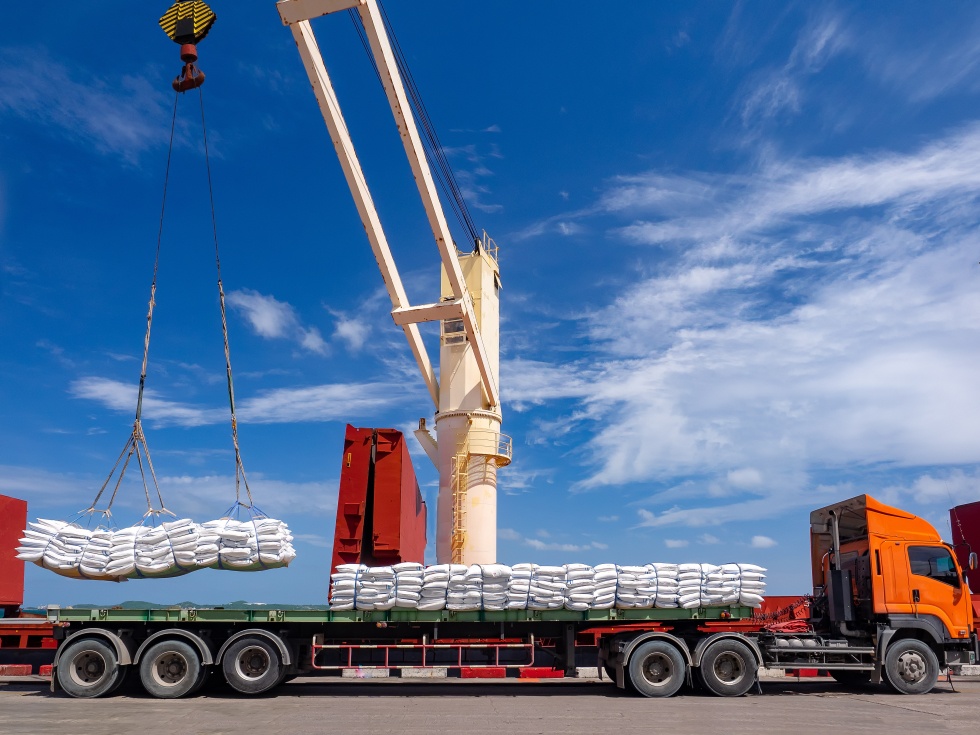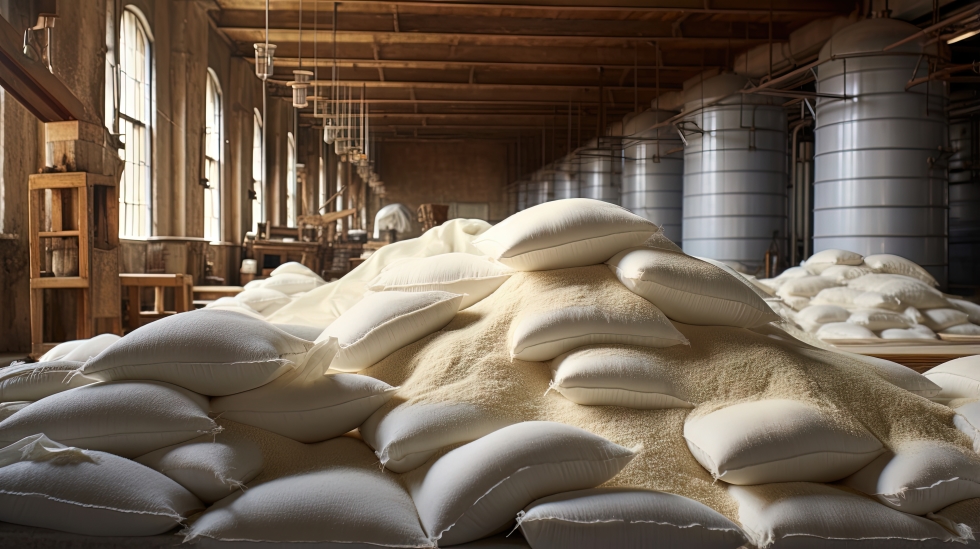Indonesia's Dynamic Rice Import Sector
Explore the evolving landscape of Indonesia's rice trade, discover predictions, SME opportunities, and embrace success on the Export Portal.

In the dynamic landscape of international trade, Indonesia is making headlines with a significant surge in rice imports during the first eight months of this year. This surge is not merely a statistical anomaly but a strategic move by Southeast Asia's largest economy to fortify its stocks of the staple commodity. The ripple effect of global events, particularly India's decision to halt non-basmati rice exports, has propelled Indonesia into action, prompting a closer look at the intricacies of its rice import landscape.
Factors Driving Indonesia's Rice Import Surge
The recent spike in global rice prices, hitting a 15-year high, can be traced back to India's pivotal decision in July. Citing soaring domestic prices and adverse climatic conditions, India banned the export of non-basmati rice, creating a ripple effect in the global rice market. Indonesia, in response to this development, intensified its efforts to import rice, aiming to bolster strategic reserves and ensure stability in the face of potential disruptions to rice production caused by the El Nino weather pattern.
Impressive Import Figures Reflecting Strategic Intent
The statistics speak volumes – Indonesia imported a staggering 1.59 million tons of rice from January to August this year. This substantial increase, compared to the 429,000 tons imported for the entire year of 2022, underscores the nation's proactive approach to securing its staple food supply. The strategic reserve-building initiative aligns with the government's efforts to navigate potential disruptions caused by climatic patterns.
Regional Collaborations in Rice Trade
A closer look at the sources of Indonesia's rice imports reveals strong regional collaborations. Southeast Asian neighbors played a pivotal role in meeting Indonesia's demand for rice. Thailand emerged as a significant contributor, exporting 802,000 tons, while Vietnam actively participated by shipping 674,000 tons of rice to Indonesia. This regional synergy highlights the interconnected nature of economies in Southeast Asia, where collaboration in the rice trade becomes a critical factor.

Presidential Initiatives Addressing Challenges
President Joko Widodo acknowledged the complexities and challenges faced by Indonesia in its rice imports, primarily due to restrictions imposed by exporting countries. Despite the country's set import quota of 2.3 million tons for 2023, navigating these challenges has become intricate. To counter soaring rice prices, President Widodo directed the release of reserve stocks by the state-owned logistics company Bulog, demonstrating decisive action to stabilize the market.
Price Stability Concerns and Proactive Measures
As of the latest data, the average nationwide rice price in Indonesia stands at 14,490 rupiah ($0.94), indicating a 16 percent increase from the same period last year. Maintaining price stability is a key concern, prompting Indonesia to explore strategic initiatives. The release of reserve stocks and ongoing efforts to secure a stable supply underscore the nation's commitment to ensuring that rice, a crucial staple, remains accessible to its citizens.
Predictions for Indonesia's Rice Trade
As Indonesia navigates the intricate landscape of rice trade, several predictions emerge, shaped by both domestic and global factors. Here are key forecasts for the future of Indonesia's rice trade:
- Market Diversification: Indonesia is likely to explore diversification in its sources of rice imports. The recent emphasis on Southeast Asian neighbors may evolve to include a broader range of exporting countries, enhancing supply chain resilience.
- Government Policy Adjustments: Anticipate adjustments in government policies related to rice imports, especially in response to global market dynamics. Flexibility in policy frameworks may become crucial to adapting swiftly to unforeseen challenges.
- Technological Integration: Embracing technological solutions for trade facilitation is on the horizon. The adoption of digital platforms and blockchain technology may streamline the rice import process, ensuring transparency and efficiency.
- Climate-Resilient Strategies: Given the impact of climate conditions on rice production, expect increased emphasis on climate-resilient strategies. Investment in technologies, research, and practices to mitigate climate-related risks could shape the future of rice imports.
- Global Collaborations: Indonesia might strengthen collaborations with international organizations and trade partners to address challenges collectively. Engaging in dialogues and partnerships could enhance the nation's position in the global rice trade.
Opportunities for SMEs in Indonesia's Rice Import Sector
For Small and Medium Enterprises (SMEs), Indonesia's dynamic rice import sector presents opportunities to contribute and thrive. Here are specific avenues that SMEs can explore:
- Logistics and Distribution: SMEs can explore opportunities in the efficient transportation and distribution of rice within Indonesia. Collaborations with regional logistics partners can streamline the movement of rice from importing nations to local markets.
- Technological Solutions: Innovation in technology-driven solutions for inventory management, quality control, and supply chain visibility presents a lucrative avenue. SMEs specializing in ag-tech and logistics tech can contribute to enhancing the efficiency of the rice import process.
- Quality Assurance and Certification: Entrepreneurs can establish businesses focused on quality assurance and certification of rice imports, ensuring compliance with international standards. Providing certification services can instill confidence in consumers and contribute to market transparency.
- Sustainable Practices: SMEs promoting sustainable and eco-friendly rice production practices can find a niche market. Initiatives related to organic rice farming, environmentally conscious packaging, and fair trade practices can resonate with consumers.
- Market Entry Consultancy: Consulting services facilitating market entry for international rice suppliers can be a valuable niche for SMEs. Offering insights on regulatory compliance, market trends, and distribution channels can assist foreign suppliers in navigating the Indonesian market.
In embracing these opportunities, SMEs can play a pivotal role in strengthening Indonesia's rice import sector while fostering innovation and sustainability.
Conclusion: Appeal to Trade on Export Portal
Indonesia's dynamic response to the challenges in rice imports highlights its resilience and adaptability in the global trade arena. As the nation confronts the complexities of international trade dynamics, opportunities for collaboration and strategic planning emerge. The import-export community, especially SMEs, plays a crucial role in securing essential commodities and contributing to the stability of the nation's food supply. For those looking to engage in the rice trade with Indonesia, the Export Portal stands as an ideal platform to explore and initiate valuable partnerships, ensuring a seamless and mutually beneficial trade experience.






Comments 0